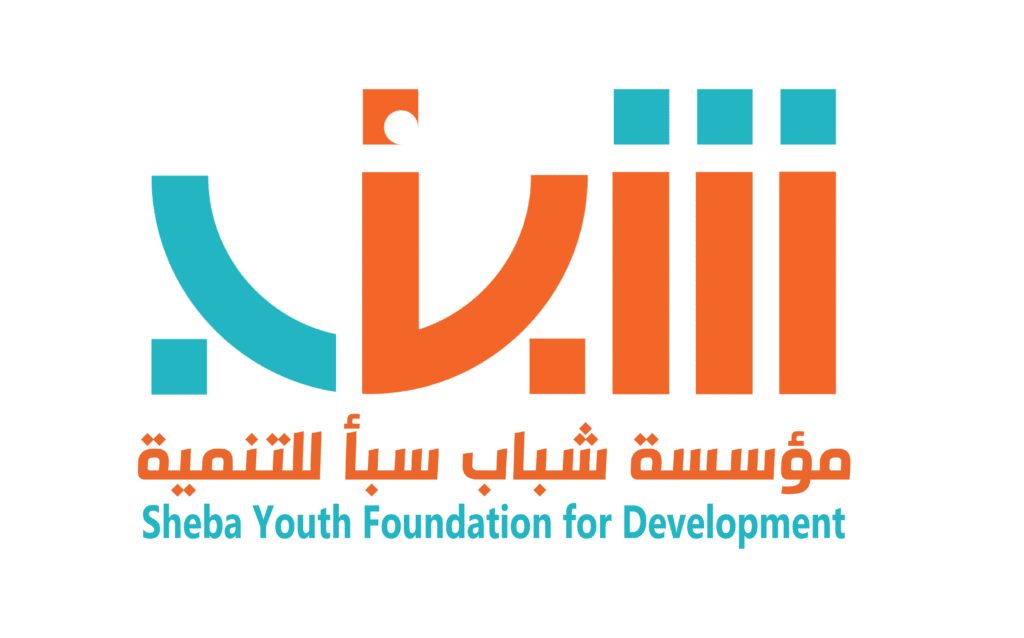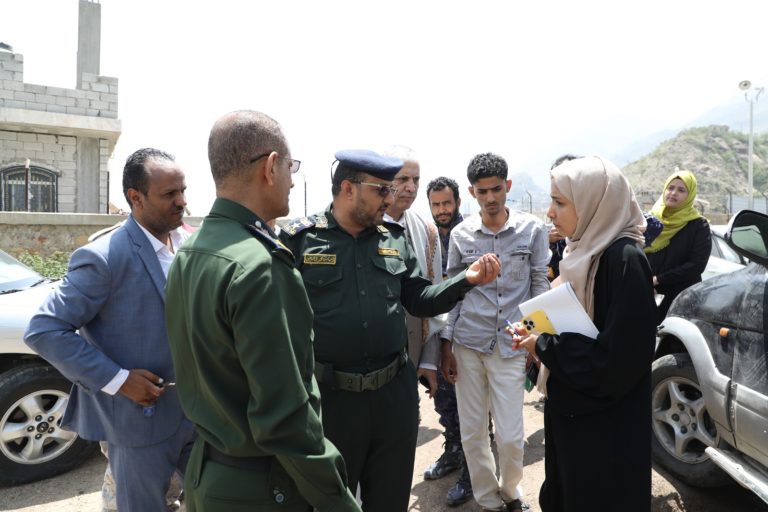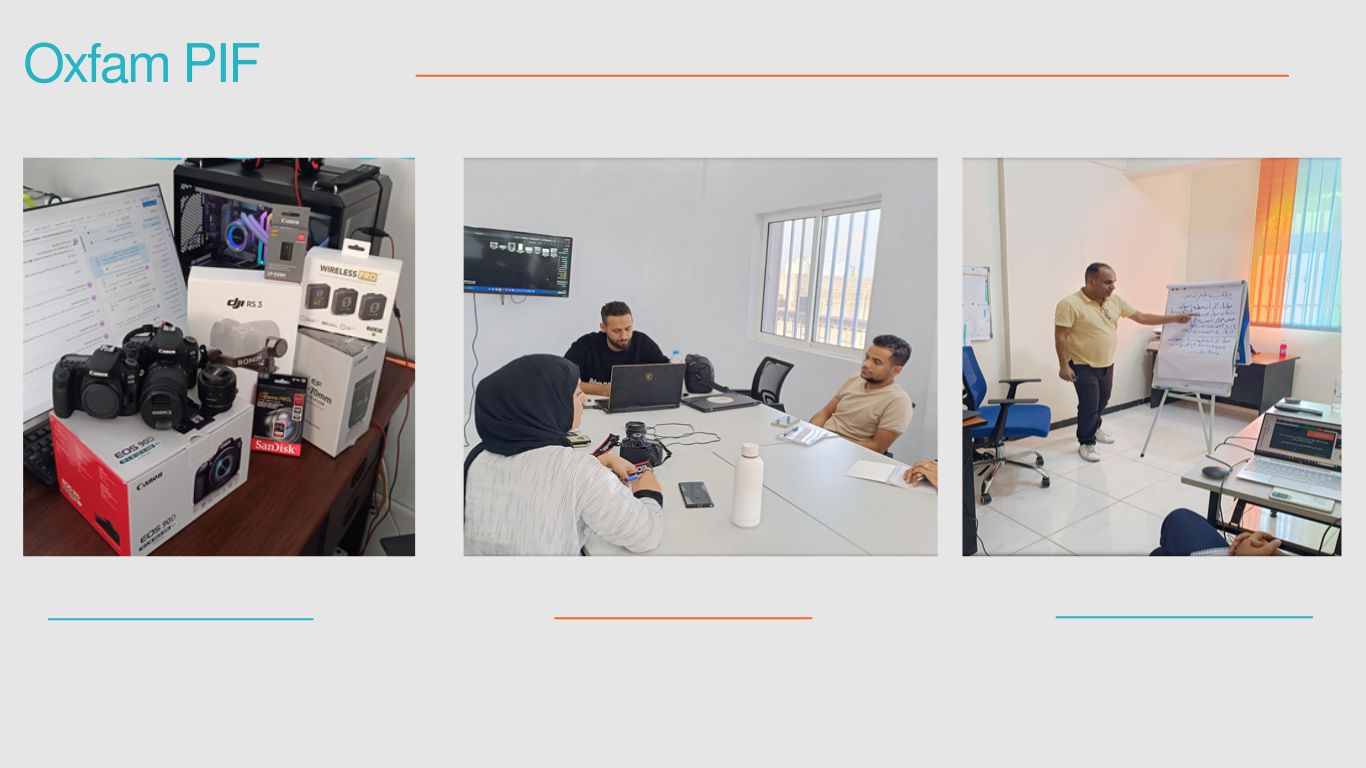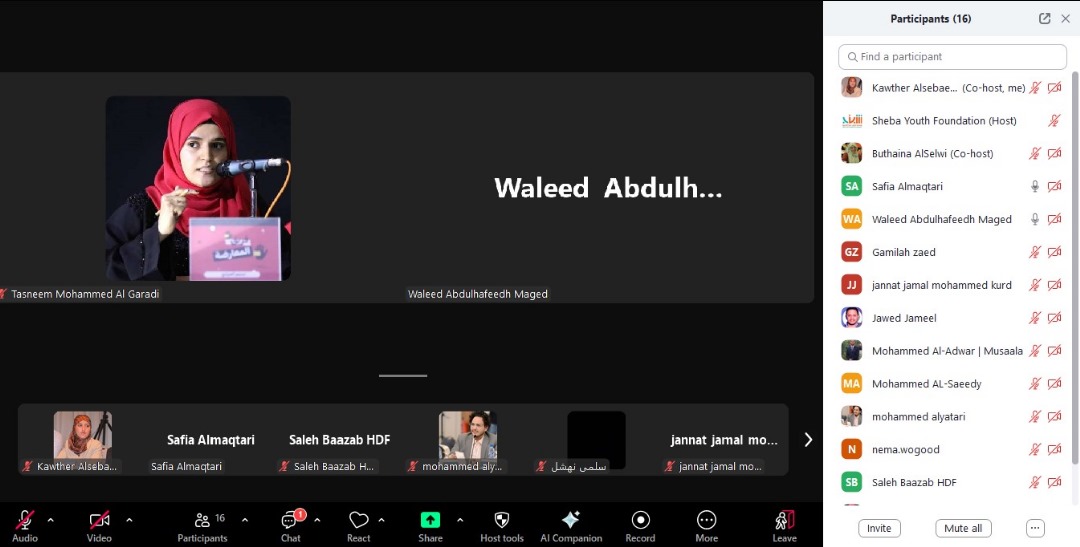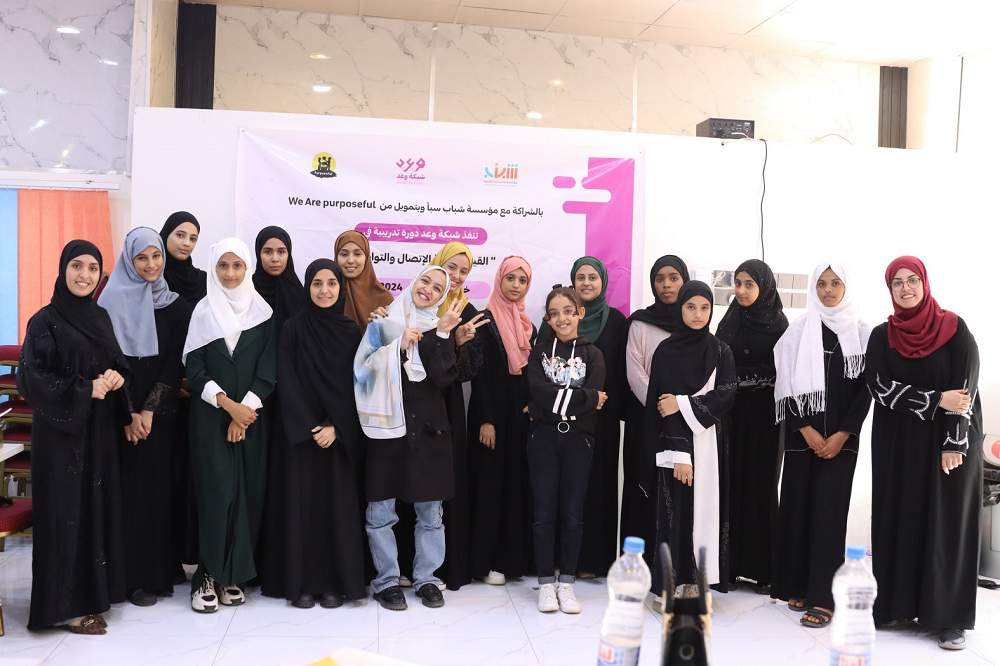For almost seven years, the ongoing fighting in Taiz and the blockage of main roads in and out of the city resulted in cutting the water supply to the city. Additionally, inside the city nine water tanks came under the control of Yemeni government allied forces who used to sell the water and use the revenues for administrative costs. Afraid to confront the military, the government Water Authority inside the city cut the water supply but that also deprived residents in three districts Al-mudhafar, Al-qaherah and Salah of water. Women, girls, and children would travel long distance on unsafe roads to fetch water which sometimes put them at risk of sexual abuses and also sniper attacks.
PartnersYemen supported Ola Al-Aghbari, a young Yemeni civil society female leader who heads Sheba Youth Foundation (Sheba), to address this problem. Ola started negotiations with local authority and military actors so that the wells management is transferred to the local authority in Taiz. Soon after, however, Ola came under attack by some radical mosque preachers who spoke against the initiative citing that “People who allow a woman to lead them are doomed.”
To overcome this challenge, Ola sought the support of influential local figures and political party leaders in the city. After consultations with them, she agreed with them to form a committee that included a prominent tribal leader, a representative from the local authority, a representative from the Chamber of Commerce, a local female mediator and lawyer, and a highly respected local caricaturist. The mediation committee members were selected based on their status and influence. With Ola’s facilitating, the group managed to convince the military commanders to hand nine water tanks to the Office of the Ministry of Water and Environment (OMWE) in Taiz city. So far, military actors signed agreements to hand over six water wells one of which is now officially under the control of OMWE.
During this mediation process, the mediation committee reached out to the governor of Taiz and engaged Taiz security who agreed to deploy security men to guard the water wells after they are handed over to the local authority. The OMWE had major shortage in budget that they could not make a commitment to maintain the water network. Additionally, OMWE happened to have 16 water trucks in its backyard that were donated by the King Salman Center for Humanitarian Relief. The trucks where not in use due to lack of budget to pay for drivers and fuel. The mediation committee came up with a creative idea and convinced the OMWE to rent the water trucks to a private company and the money of the rent would go to cover the administrative fees for OMWE and to pay salaries for the security personnel guarding the water wells. To ensure sustainability, part of the agreement was also that OMWE will start charging beneficiaries for water so that it can use that to fund its operations.
This initiative not only gave access to 41 thousand residents in Al-mudhafar, Al-qaherah, and Sala districts but also support governance structures in the governorate so that they can deliver services. As the director of OMWE noted “Thanks to the successful mediation by Sheba Foundation, taking control of the water tanks is a first step to revive the role of the Water Authority so that it can better serve the people.” Colonel Adnan Al-Saqaf, the deputy director of Taiz police, committed to protect the water tanks.
The success of this initiative created a demand and support for similar interventions. Several civilians and community leaders demand Sheba Youth Foundation to continue its mediation efforts to bring public facilities under the control of the local authority. The director of National Water Resource Authority (NWRA), a government entity that manages water resources in the city, praised the Women-led Committee mediation efforts and requested that Sheba Foundation negotiate the release of the NWRA headquarter which is currently occupied by a military force in the city. “There were several local initiatives to free the water facilities before but all of them failed. However, there are tangible and sustainable results on the ground led by Sab’a Youth foundation and we hope that continues” Toran Al-hadad, one of the participants in the initiative, said. Female activist Ashwaq Al-Saqqaf said that mediation like these can also convince military actors to evacuate schools and government facilities.
The intervention created confidence in the role of women in the society. In the words of Jamal Al-Maghrabi, a participant in the initiative, “Taiz would have been better off if members of the local authority were women.” In the words of Ola “As women this initiative gave us prominence. One of the military commanders [we talked to] said that this is the age of women not men.”
